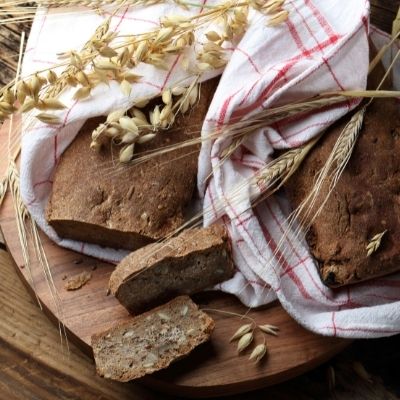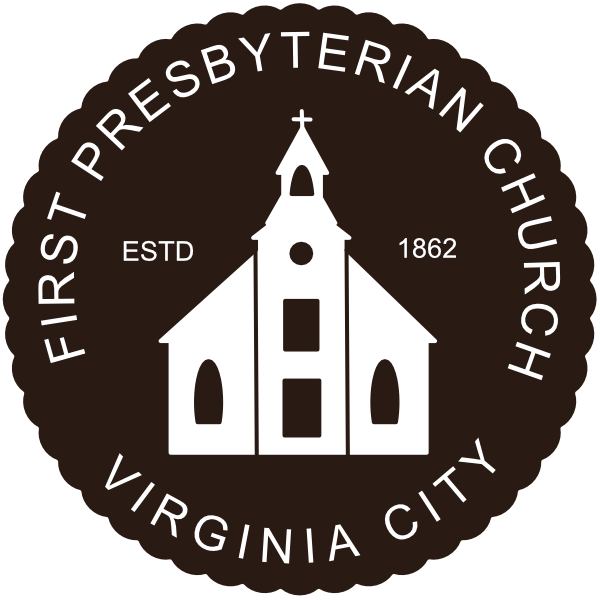
Her arms were spindly and rough, like the dry twigs she had gathered for kindling. Her body shook as she stood over the fire, greedily sipping and sucking the steam from the pan, as though the smell of frying bread could fill her belly and soothe her fears. She had lived her life a stone’s throw from the Mediterranean, at Zarephath, seven miles south of Sidon, in a territory ruled by Jezebel’s father. She had always loved the sea, but now its watery abundance seemed only to mock her, reminding her of all she lacked.
Tears escaped her eyes, try as she might to blink them back. How hard it was to suffer her fears alone, to wake in the night with no one to warm her, no one to whisper sweet lies about tomorrow. If only her husband were alive to squeeze a harvest from the fields. But he had died before the drought, leaving her with a small son, a house, and little else. Every night she hoped for rain, but every morning she woke to a brilliant sky.
And though she starved herself to feed her child, his distended belly accused her. His need condemned her. She had failed in the most basic ways a mother could, unable to protect, nurture, and provide. These days she stood with shoulders hunched as though to hide her breasts. Today she had scraped the last bit of flour from the barrel and poured the last drop of oil from the jug. She began to prepare for a final supper for herself and her child.
But then a stranger had called to her: “Woman, would you bring me a little water in a jar so I may have a drink?”
Graciously, she had gone to fetch it, only to have him call after her, “And bring me, please, a piece of bread.”
Is the man mad? she wondered. He might as well ask me to snap my fingers and produce a cow to feast on.
She turned on her heel and replied, “As surely as the Lord your God lives, I don’t have any bread—only a handful of flour in a jar and a little oil in a jug. I am gathering a few sticks to take home and make a meal for myself and my son, that we may eat it—and then die.”
But the man had persisted. “Don’t be afraid. Go home and do as you have said. But first make a small cake of bread for me from what you have and bring it to me and then make something for yourself and your son. For this is what the Lord, the God of Israel, says: ‘The jar of flour will not be used up and the jug of oil will not run dry until the day the Lord gives rain on the land.’ “
Instead of cursing the stranger for his callousness, as we might expect, the woman did exactly as he had requested, feeding him the food she had reserved for herself and her son.1
As I see it, there are some major conundrums with this encounter. First, the woman from Zarephath wasn’t a Jew, but a Phoenician. She had no idea that this stranger who approached her was Elijah, the very prophet who had the gall to inform Ahab, king of the region in which she lived, that God was withholding rain to punish Israel’s idolatry. She would have been astonished to learn that this same God had instructed Elijah to “go at once to Zarephath of Sidon and stay there” telling him that “[he] had commanded a widow in that place to supply him with food.” Which leads to the second problem. God sends Elijah to a woman; a widow actually, who didn’t even have the resources to provide her own needs, let alone that of a visitor. And finally, not only was God sending Elijah on a trip that was WAY out of his way, he was sending him deep into the territory of King Ahab and Queen Jezebel, the latter who had sworn herself as Elijah’s enemy. Yet Elijah went, because he knew that God had prepared someone to provide for him, and more importantly, that there was someone who needed him.
A prophet and a widow and a miracle many centuries ago. How does this story speak to us in our day and time? First, we are told that God was very aware of this widow and her needs. Elijah had to travel way out of his way to get to this woman. Yet, she was important enough to God that he commanded Elijah to go to her. One can only imagine what her prayers must have been at that time. Perhaps she had been praying for a miracle and for deliverance. I suspect she didn’t think her prayers would be answered like they were. So, I can’t help but wonder, if God could do this for a destitute woman then, how much more can we trust that He is aware of us and our needs.
Secondly, she had the faith to walk in the unknown, and her example can give us the same confidence. The widow did not know who Elijah was, and she couldn’t be certain that there would be more meal and oil left over after she had fed him. She went to the very edge of her faith, and there, God caught her and sustained her by his own hand. Likewise, often times God will ask us to go to the very end of our limits, the bottom of our barrel, calling upon all our resources before he provides deliverance – but, we can trust him to provide our deliverance. He may ask us to sacrifice ALL that we have (think the widow and her offering in our gospel lesson), but as a result we will gain much greater blessings.
Finally, the widow is pushed to the end of her rope, faces her doubts, and ultimately becomes stronger through her encounter with the prophet. Yet this is not the end of the widow’s story. After all that she goes through in the famine; her son gets sick and dies. This finally seems to be more than she can bear and she reaches her breaking point. She reprimands Elijah, blaming him and his God. Even though she had witnessed a miracle, and had been fed by the hand of the Lord, she still had her moment of weakness and doubt. Despite her experience, she feels like God has forsaken her this time and is punishing her. Even Elijah is puzzled. And after pleading with God, Elijah is able to bring her son back to life. As he hands the living child back over to his mother, she remembers her faith and the mercy of the Lord and cries, ”Now by this I know that you are a man of God, and that the word of the Lord in your mouth is truth.” God does not leave her alone, for once again he hears her prayers and provides deliverance. Even when she thinks he has forsaken her and there is no hope, God provides.
Her story is a reminder to us that every day we are dependent on God for our very lives. Whether we recognize it or not, God sends us manna from heaven each day we are alive, although it may find it in our grocery cart. We are called to live by faith. We are also reminded that God does not leave us. He hears our prayers, and he answers them, often in ways that we might never imagine. Camille Fronk, says “If we allow Him, God will take us to that place where there is no one else to help us but Him”2
The widow of Zarephath had felt utterly alone, not knowing God had his eye on her. Yet for some reason she believed Elijah and acted accordingly, giving him everything she had. And after that, every time she dipped her hand into the flour, every time she poured oil from the jug, the widow saw another miracle unfold, another sign of favor, additional evidence of God’s provision. Just as Elijah had promised, the supply of flour and oil lasted day after day, month after month, never failing until at last the rains came and revived the land.
It is also a reminder to us that God doesn’t ignore the needs of those who cannot help themselves. He doesn’t urge them to pick themselves up and get going when they have no resources to do so. He doesn’t pat them on the back and say he’s sorry life is so tough. Instead, he sometimes intervenes by miraculous understatement, in this case by making sure that a little bit of oil and flour—just enough for a small loaf—didn’t run out.
An unexpected check comes just when you need it. Another mother gives you her kids’ outgrown clothing so you can clothe your own children. God uses something or someone to change your husband’s heart just when you thought he didn’t love you anymore. Our God is still a miraculous provider, granting what we need, sometimes in the most unexpected ways.
I challenge you this week not only to look for the miracles around you, large or small, but to be that miracle to one who is at the end of their rope; to be the hands and feet and heart of God in the community around you. Amen.
1This retelling is drawn from Women of the Bible: A One-Year Devotional Study of Women in Scripture by Ann Spangler and Jean Syswerda. Used with permission.
2–Camille Fronk, lecture on Women in the Scriptures, Brigham Young University, 2005
